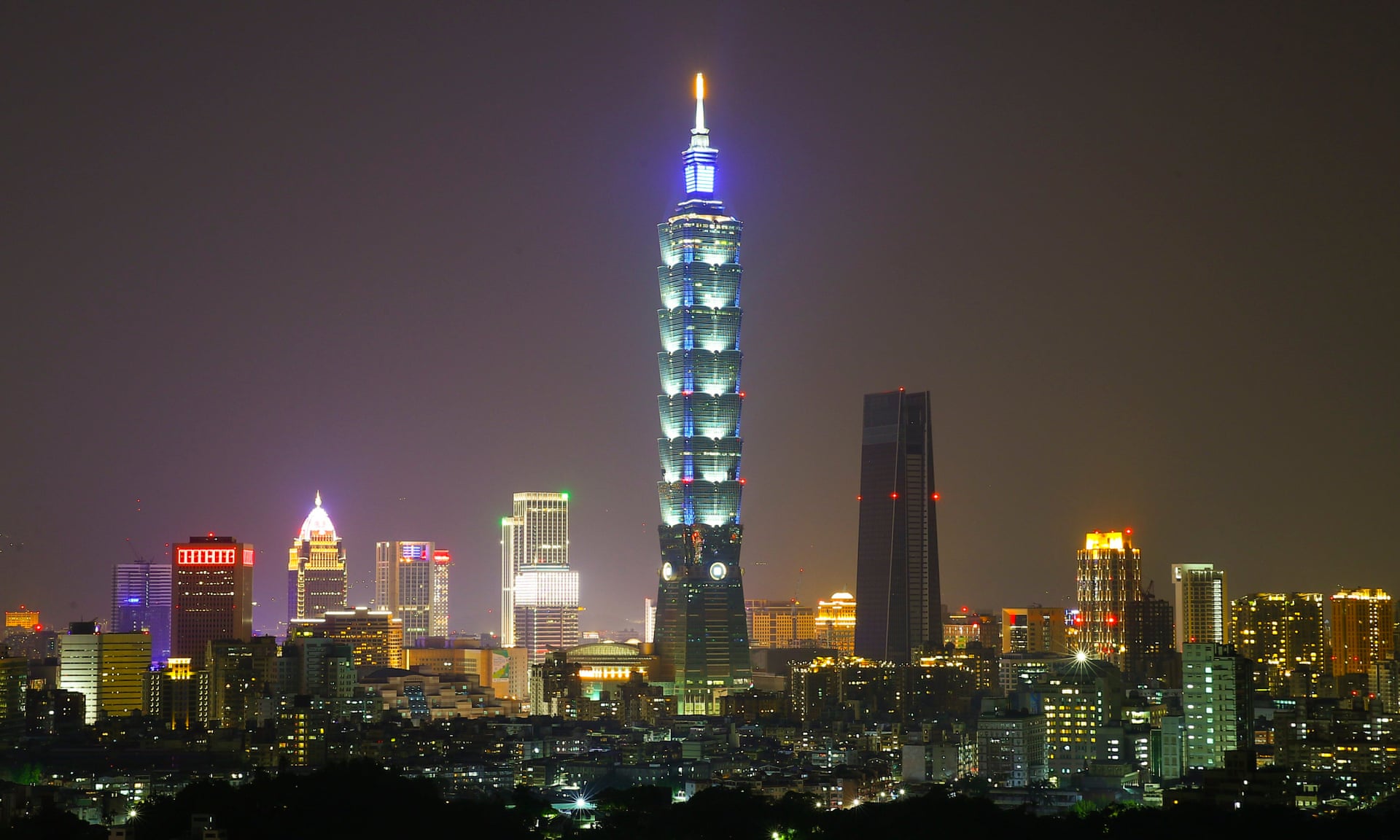By Simon Tisdall
China could do to Taiwan what Russia did to Crimea if Beijing’s relations with Washington, strained by an expanding trade war and military rivalry in the East and South China seas, deteriorate further.
The warning from maritime security experts follows a series of recent Chinese moves to put pressure on Taiwan’s pro-independence government.
The warning from maritime security experts follows a series of recent Chinese moves to put pressure on Taiwan’s pro-independence government.
These include a vow last month by China’s dictator that Taiwan would face the “punishment of history” if it pursued a separatist course.
The latest rupture came at the weekend after Taiwan’s premier, William Lai, told parliament in Taipei he was a “Taiwan independence worker” and that Taiwan was a sovereign, independent country.
China, which calls Taiwan a renegade province, quickly condemned his comments as “dangerous and presumptuous”.
The Chinese Communist party-published Global Times said an international warrant could be issued for Lai’s arrest under the 2005 anti-secession law.
“If evidence of his crimes is cast-iron, then a global ‘wanted’ notice can be issued for him,” it said.
China has accelerated efforts to isolate Taiwan diplomatically in recent months, using its economic clout to pressure countries and international institutions into breaking ties with the island.
China has accelerated efforts to isolate Taiwan diplomatically in recent months, using its economic clout to pressure countries and international institutions into breaking ties with the island.
It has curbed bilateral trade, cultural exchanges and tourism.
Beijing has also increased naval exercises and fighter-bomber sorties over the strategically important Taiwan Strait.
China’s raised military profile includes escorted bomber “encirclement flights” and the recent deployment of an aircraft carrier off Taiwan.
Discussing possible Chinese moves to seize Taiwan by force, a panel of maritime security experts convened by the Atlantic Council thinktank in Washington noted that by controlling Taiwan, China would gain direct access to the western Pacific and extend its influence in disputed areas of the East and South China seas, where it is establishing military bases on reclaimed land.
Sarah Kirchberger of the Institute for Security Policy at the University of Kiel in Germany suggested the US, which is bound, de facto, to uphold Taiwan’s peace and security under the 1979 Taiwan Relations Act, should compare the present situation to that existing before Russia’s forcible annexation of Crimea in 2014.
Discussing possible Chinese moves to seize Taiwan by force, a panel of maritime security experts convened by the Atlantic Council thinktank in Washington noted that by controlling Taiwan, China would gain direct access to the western Pacific and extend its influence in disputed areas of the East and South China seas, where it is establishing military bases on reclaimed land.
Sarah Kirchberger of the Institute for Security Policy at the University of Kiel in Germany suggested the US, which is bound, de facto, to uphold Taiwan’s peace and security under the 1979 Taiwan Relations Act, should compare the present situation to that existing before Russia’s forcible annexation of Crimea in 2014.
Kirchberger quoted a senior Chinese naval official as saying: “We should do what Putin did in Crimea to Taiwan”.
The increased pressure on Taipei is in line with the politically dominant Xi’s pursuit of a more hardline, nationalist approach towards international and domestic affairs, exemplified by the harsh treatment of pro-democracy activists in Hong Kong.
The situation poses a particular challenge for the US, which remains Taiwan’s principal foreign ally and arms supplier.
The increased pressure on Taipei is in line with the politically dominant Xi’s pursuit of a more hardline, nationalist approach towards international and domestic affairs, exemplified by the harsh treatment of pro-democracy activists in Hong Kong.
The situation poses a particular challenge for the US, which remains Taiwan’s principal foreign ally and arms supplier.
Since taking office, Donald Trump has assiduously courted Xi, inviting him to Florida, visiting Beijing, and frankly admitting he needs China’s help in pressurising North Korea to halt its nuclear weapons programmes.
But Trump has also launched a fight with China on tariffs, sparking Chinese retaliation in what could yet become an all-out trade war.
Meanwhile, Trump last month signed into law the Taiwan Travel Act, whose express purpose is to encourage bilateral official exchanges with Taiwan “at all levels”.
Meanwhile, Trump last month signed into law the Taiwan Travel Act, whose express purpose is to encourage bilateral official exchanges with Taiwan “at all levels”.
During a weekend meeting in Taipei with Tsai Ing-wen, Taiwan’s pro-independence president, Ileana Ros-Lehtinen, a senior member of the US Congress, declared the US-Taiwan relationship was stronger than ever.
The worry now is that China, aware of Trump’s vulnerability over North Korea, angry at his tariff war and sensing his lack of interest in the western Pacific’s military balance may be tempted to test US resolve over Taiwan.
Inviting the Russian president, Vladimir Putin, to the White House in a phone call last week, Trump appeared to have forgiven and forgotten all about Crimea.
So how safe, really, is Taiwan?

Aucun commentaire:
Enregistrer un commentaire